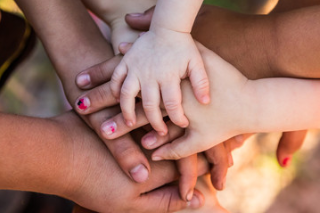

Rape and sexual assault can take many different forms, however it is never the fault of the victim.
What is Sexual Assault?
Sexual assault can includen any kind of unwanted sexual contact. A person may use force, threats, manipulation, or coercion. to commit sexual violence.
Forms of sexual violence include:
- Rape or sexual assault
- Sexual assault by a spouce or partner
- Child Sexual Assault and/or incest
- Unwanted sexual contact/touching
- Sexual exploitation and trafficking
- Exposing one’s genitals to other(s) without consent
- Public masturbation
- Watching someone engage in private acts without knowledge or permission
- Taking video or photography of sexual acts without someone’s knowldege or permission
- Nonconsensual image sharing
- Sexual harassment
Consent means that: both people are old enough to consent, have the capacity to consent and agreed to the sexual contact. Consent must be given freely and a person can change their mind at any time.
Click here for a video on consent
Are the participants old enough to consent?
Each state sets an age of consent, which is the minimum age someone must be to have sex. People below this age are considered children and cannot legally agree to have sex. In other words, even if the child or teenager says yes, the law says no.
In Alaska, the legal age of consent is 16 provided the older party is not in a position of authority. Generally, "I thought she was 18" is not considered a legal excuse — it's up to you to make sure your partner is old enough to legally take part.
Did both participants have the capacity to consent?
States also define who has the mental and legal capacity to consent.
Those with diminished capacity — for example, some people with disabilities, some elderly people and people who have been drugged or are unconscious — may not have the legal ability to agree to have sex.
These categories and definitions vary widely by state, so it is important to call us and find out more about the laws in our state.
Common Questions
I didn't resist physically — does that mean it isn't rape?
People respond to an assault in different ways. Just because you didn't resist physically doesn't mean it wasn't rape — in fact, many victims make the conscious decision that physical resistance would cause the attacker to become more violent. Lack of consent can be expressed (saying "no") or it can be implied from the circumstances (for example, if you were under the statutory age of consent, if you were temporarily incapacitated, or if you were afraid to object because the perpetrator threatened to harm you or a loved one).
I used to date the person who assaulted me — does that mean it isn't rape?
Rape can occur when the offender and the victim have a pre-existing relationship (sometimes called "date rape" or "acquaintance rape"), or even when the offender is a victim's spouse or partner. It does not matter whether the other person is an ex-lover or a complete stranger, and it doesn't matter if you've had sex in the past. The majority of sexual assaults are committed by someone known to the victim.
I don't remember the assault — does that mean it isn't rape?
Just because you don't remember being assaulted doesn't necessarily mean it didn't happen and that it wasn't rape. Memory loss can result from the ingestion of GHB and other "rape drugs," and/or from excessive alcohol consumption.
I was asleep or unconscious when it happened — does that mean it isn't rape?
If you were asleep or unconscious, then you didn't give consent.
I was drunk or he was drunk — does that mean it isn't rape?
Alcohol and drugs are not an excuse — or an alibi. The key question is still: did you consent or not? Regardless of whether you were drunk or sober, if the sex is nonconsensual, it is rape. If you were unconscious due to drug or alcohol consumption, that means you were unable to give consent.
I thought "no," but didn't say it — does that mean it isn't rape?
It depends on the circumstances. If you didn't say "no" because you were legitimately scared for your life or safety, then it may be rape. Sometimes it isn't safe to resist, physically or verbally.
Please call us if you think you may have been sexaully assaulted. An advocate can provide you with confidential support, options and resources.
LOCAL HOTLINE
907.452.2293
TOLL FREE
800.478.7273
